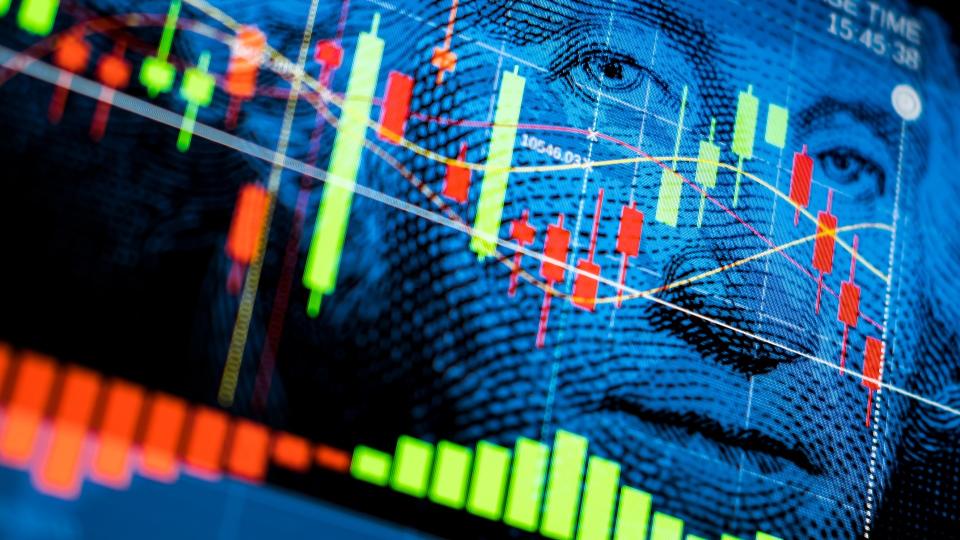What Will Happen to Interest Rates in 2024?

In 2023, the Fed drove up interest rates to staggering heights — up to as much as 5.5%, the highest level in more than two decades.
Experts: Make These 7 Money Resolutions If You Want To Become Rich on an Average Salary
Check Out: Pocket an Extra $400 a Month With This Simple Hack
The purpose of elevating interest rates is simple: it’s a move to fight inflation. How? Well, when the Fed increases interest rates, the price of borrowing also goes up — hence all those steep mortgage rates people have been struggling with of late. When loan activity goes down — which it does because of the high interest rates — spending slows, which decreases demand and, ideally, reduces inflation.
Inflation has been slowing, indicating that the Fed’s move in upping interest rates has, to an extent, been successful. Now, the big question is: What will happen to interest rates in 2024? The answers are shockingly elusive.
Sponsored: Get Paid To Scroll. Start Now
Honestly, It’s Impossible To Predict for Sure
Predicting how the Fed will handle interest rates in 2024 is pretty much impossible to accurately predict. This is because the economy itself is unpredictable and can quickly change directions with little to no warning.
Just look at what’s happened with interest rate predictions in the past.
“You can see this by looking back at predictions experts made going into 2021, 2022 and 2023 about where rates would be at year end,” said John Jennings, president and chief strategist of St. Louis Trust & Family Office, an adjunct professor at the Washington University in St. Louis in the Olin School of Business in its wealth and asset management graduate program and author of “The Uncertainty Solution: How to Invest with Confidence in the Face of the Unknown.”
“A compelling example of how hard it is to predict interest rates is to look at the Fed and their predictions of the Fed Funds Rate — which they set,” Jennings said. “In March of 2021, when inflation was starting to run too hot, the Fed prediction for the end of 2022 Fed Funds rate was still at basically zero, and [they predicted] a range of 0%-1% for end of 2023. Of course, that was laughably wrong, as Fed Funds ended 2022 at 4.1%, and now, in December 2023, the rate is 5.25%-5.50%.”
If the Fed can’t accurately predict what’s going to happen with interest rates, who can? All anyone can do is speculate and hypothesize.
I’m a Financial Advisor: Here’s the No. 1 Piece of Advice I Would Give My Younger Self
It Depends, In Part, On Inflation
Though the fate of interest rates is mysterious indeed, we do know that inflation plays a critical role in how they move.
“Currently, the goal of [a] 2% inflation rate has not been met, and the labor market is strong with no signs of a recession,” said Dr. Tenpao Lee, professor of economics at Niagara University. “The Fed raised interest rates 11 times in the last 20 months, and its impacts were significant but diminishing marginally; on the other hand, the GDPs were strong in recent months and the so-called soft landing seemed very possible.”
Rates Could Go Up Even Higher
If inflation doesn’t drop more substantially, or rises, in 2024, we could be in for more interest rate hikes.
“If inflation is getting worse, the Fed will raise rates again,” Lee said.
How the government spends its money is critical here.
“If government spending continues at the current pace, the interest rates investors demand will almost surely go higher, almost forcing the hand of the Fed to raise rates and certainly making it difficult for them to push rates lower,” said Rod Skyles, blogger at The Unconventional Economist.
Higher interest rates could be harmful. “[They] will negatively impact both consumer and corporate spending, slowing the economy,” Skyles said.
Or, Interest Rates Could Go Down
But then again, interest rates could drop. It depends on the performance of the economy at large.
“If a recession is on the horizon, the Fed will cut interest rates accordingly,” Lee said.
And then you’ve got all the non-economic factors to consider, such as wars in other countries that the U.S. has an interest in. These negatively impact the global economy and could lead to “stagflation.”
“In that case, the Fed’s job will be finding balanced solutions for fighting inflation and recession simultaneously,” Lee said. “If so, I suspect that the Fed’s top priority would be on fighting the recession rather than inflation.”
Ultimately, We Just Don’t Know
At the end of the day, not even financial experts — and not even the Fed! — can say what will happen to interest rates in 2024. We can only keep looking for clues.
“The real question here is if the economy can slow enough to keep rates and inflation in check,” Skyles said. “This is unknown. But the best guess for Fed policy in 2024 is that they do what they can to not raise rates more, but the environment is not conducive to rate decreases — at least, not significant decreases.
“They will be challenged on one end with massive government borrowing working to push market rates higher, and on the other end attempting to create a soft landing for the economy,” said Skyles. “These opposite forces are likely to see Fed policy remain somewhat stable throughout 2024 unless there are significant changes in government spending — lower — or a rapidly slowing economy.”
More From GOBankingRates
5 Ways to Earn at Least 5% APY on Your Money (Without Using the Stock Market)
7 Money Secrets All Wealthy People Know -- And How You Can Use Them, Too
This article originally appeared on GOBankingRates.com: What Will Happen to Interest Rates in 2024?

 Yahoo Finance
Yahoo Finance 